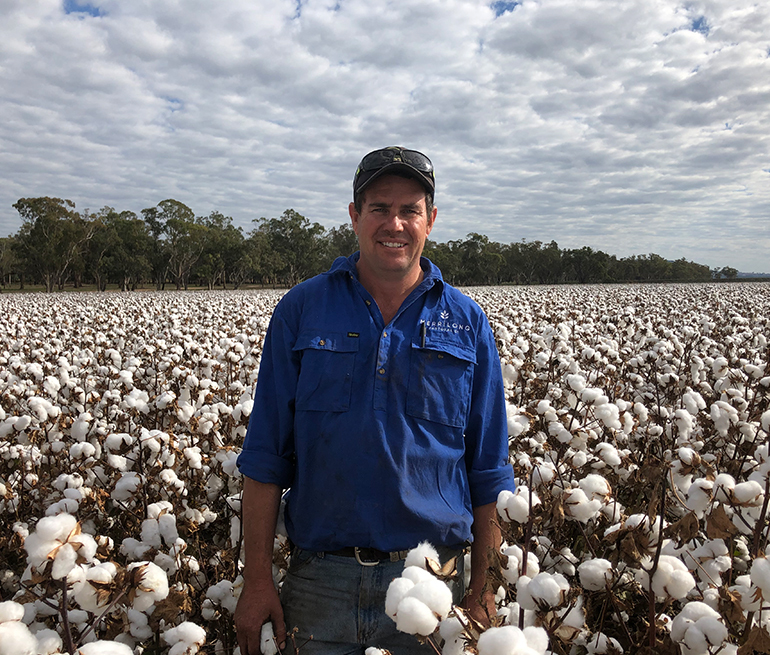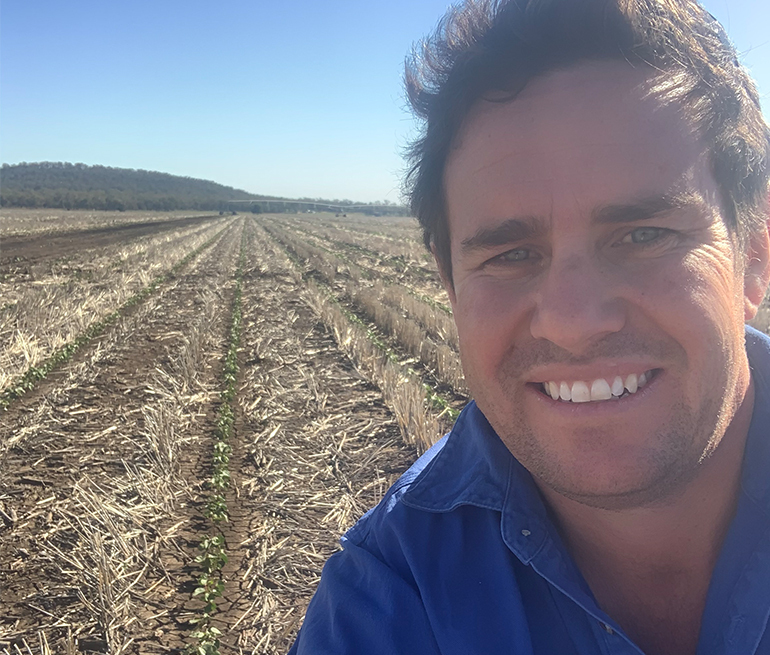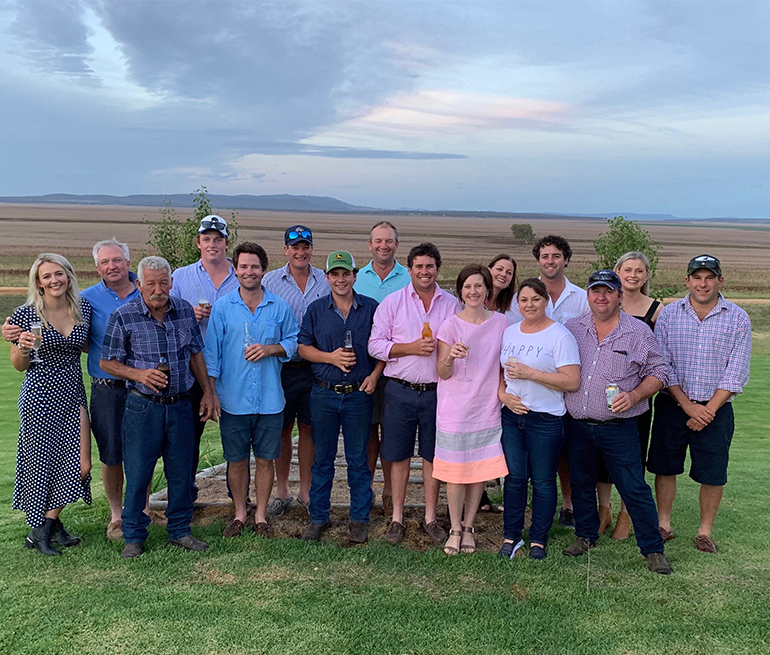‘Like a big family’: one grower’s story of being part of the cotton industry

In 2010, the team at Merrilong Pastoral Company in north-west New South Wales decided to take the plunge and try something new on their farm.
After years primarily growing summer crops of sorghum and corn and high value seed crops, property owners Gordon and Dave Brownhill decided the time was right to grow irrigated and dryland cotton on their farm – Merrilong Pastoral Company - at Spring Ridge, south of Gunnedah.
This decision was influenced by benchmarking data and wanting to get the best return on the farming asset. Cotton was the obvious choice, as it had a readymade marketing system and varieties were continually improving. This allowed cotton to fit into a shorter growing season.
Nick Beer, who has been at Merrilong for 18 years, has played a part in every step of the farm's cotton program.
“We reviewed how the farm was operating and decided that on the balance of costs, return on investment and rotation that it was a good decision for us to start growing cotton,” Beer said.
“Improvements in technology was a big thing too, particularly with the new cotton traits that had been developed; so that was a reason to get into it, the new traits made it a lot more attractive to grow.”
Merrilong Pastoral Company continues to grow sorghum as its pillar dryland crop, as well as a rotation of wheat, barley, chickpeas, faba beans and mung beans.
In a normal season, Beer and his team can grow 700 hectares of irrigated cotton and up to 400 hectares of dryland cotton.

Cotton industry ‘like a big family’
Since being in the industry, Beer said he had been impressed by how collaborative and consultative cotton growers are, in order to achieve the best results for everyone.
“Since being involved in the cotton industry we have noticed how open and welcoming the industry is,” Beer said.
“It’s like a big family, and maybe that’s because 90% of Australia’s cotton businesses are family farms.”
Merrilong employs about eight full-time staff and seasonal causal staff in roles ranging from cattle manager, to spray manager, a second-in-command irrigation manager, and other generalist roles.
“We try to make sure everyone on our farm can multi-task – it just gives everyone a bit of a break and gets rid of the monotony,” Beer said.
“The cotton industry is an important employer in our regional communities. I really value our workforce, and we do all we can to nurture them and retain them in our business and community.”

Operating with best practice and community connection key
Operating with best practice and continual improvement is important to Beer and his operation. The farm is myBMP-certified, meaning it is operating with best practice.
“It was important for us to by certified in myBMP so we would meet WHS requirements, be sustainable, watch our bottom line, and to make sure we’re doing everything in the best interest of the environment, our neighbours, the community, and of course, our family and ourselves,” he said.
Beer is strongly connected to his local community and plays a key role in linking other cotton growers with the local area. He is also the president of the Upper Namoi Cotton Growers’ Association (CGA). CGAs provide a platform for the cotton community to share ideas and distribute information locally or nationally, and they give feedback to Cotton Australia and the Cotton Research and Development Corporation on research ideas, government issues, water and energy policies.
“The cotton industry is very important to Australia’s rural communities, and as farming families, we are all very proud of our local communities and want to ensure they continue to thrive, not just survive,” Beer said.
“We are a very important part of our local community, providing jobs for locals, for our kids go to the local schools and play sport in the rural towns, and we shop locally for our agricultural supplies and services. A wide range of industries benefit from a viable local cotton industry.
Beer said his local CGA contributed to their community in a range of other ways, including:
- Sponsoring an award at each of the local schools in the region.
- Holding an annual charity sports day, with money raised on the day donated to a local charity, such as the Gunnedah Westpac Rescue Helicopter, G.S. Kidd Memorial School’s excursion to the Invictus Games, and Arts Gunnedah.
- Sponsoring, in partnership with Cotton Australia, a student each year at Marcus Oldham Ag College in Geelong, to attract youth back to rural areas and to support them into a potential career in the cotton industry.
- Donating $5,000 in 2019 to the Carroll Public School to help the school with the purchase of a bus to transport children into town to attend local events.
- Hosting a local awards night to showcase the achievements of the region’s cotton growers throughout the year, as well as field days throughout the year.
“The strength of agricultural industries like cotton really are crucial to the survival of many small regional towns, so we are always looking at ways we can give back, support and promote our local communities,” Beer said.
Moving forward, Beer said continuing to navigate the drought and recovering from the disaster will be a priority.
“Aussie farmers are here to stay – we love feeding and clothing the community and the world,” he said.
“We’re passionate about agriculture and new technology; we’re here for the long haul, and we will tackle whatever comes our way.”
Words by Robert Virtue
